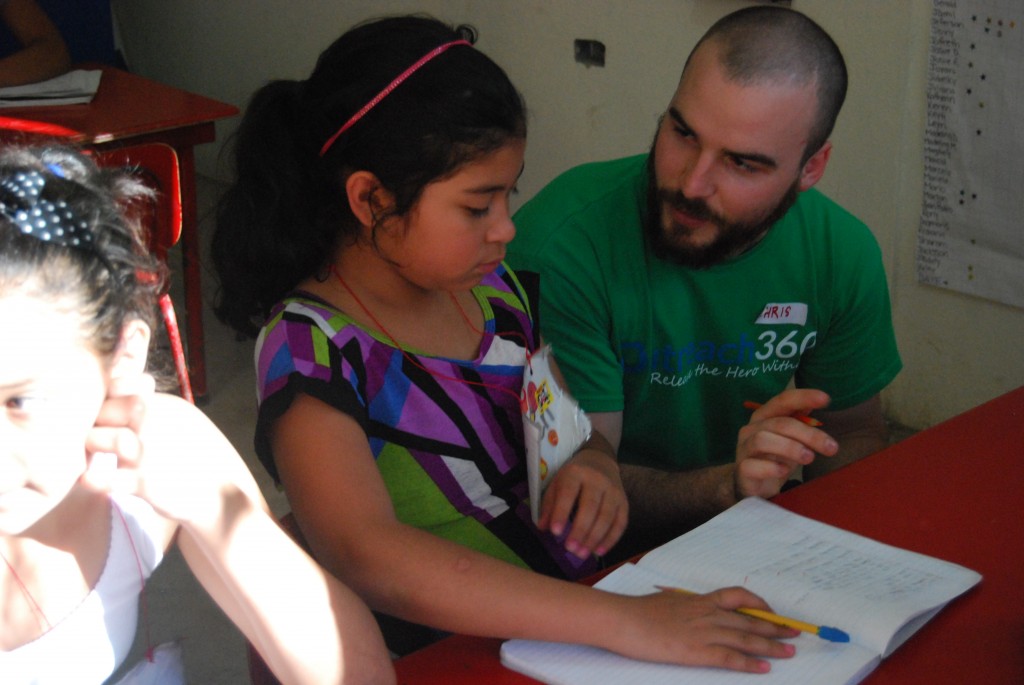Editor’s note: Journalism student Andrea Thompson accompanied a group of Algonquin students on a trip to Nicaragua with service learning organization Outreach 360.
The goal for the team was to teach English in a learning centre in the city of Jinotega.
However, the group learned more than the children they taught, and endured a lifechanging experience.
“I truly left a piece of my heart in Jinotega,” said Cassandra Davidson, a developmental service worker program.“It was an experience I’ll never forget.”
For Davidson, it was her first time on a plane. And it was also an opportunity for her to be more up front about herself.
In a group meeting prior to the trip, Davidson disclosed with the group that she was diagnosed with Asperger’s syndrome at the age of three.
Despite this, Davidson went on to surprise many of the participants.
“She rocked it,” said Chris Kolberg, a soon to be three time graduate student in business and construction. “She really surprised everyone.”
Throughout the week the students and team leaders taught a variety of students aged 12 and under. After waking up to the call of the neighbouring roosters, the group set out for their first day of teaching on Feb. 16.
Eager yet unsure of what to expect, the volunteers set out for the 10-minute walk down the road, ready to open their hearts to a new experience.
A typical day in the learning centre began with reading.
The students would rush in the door and pick an English book and sit down to read it with one of the teachers.
“Some of the students are reading at a grade 12 level in Spanish,” said Kimberly Humphreys, OLE volunteer leader.
After reading, the students gathered into their respective groups, and divided into the two classrooms.
On one side of the learning centre, six of the volunteers would teach the formal English classes while the other side would cover reinforcement.
Volunteers taught the less advanced group about animals while the advanced group learned about chores.
Reinforcement teaching consisted of crafts or activities to help the children understand what they were learning and adapted the lessons into real life.
The public school system in Nicaragua only has students for half of the day.
The students are selected to attend the learning centre through camps that Outreach 360 holds when there are enough volunteers.
The week that the Algonquin volunteers spent in Jinotega, Outreach 360 was also fortunate enough to be hosting volunteers from the University of Western Ontario who ran two day camps.
“The point of the program is to give children the opportunity to learn English,” said Humphreys. “It is so they have the choice.”
In addition to teaching, volunteers were also given the opportunity to learn about the culture and history of Nicaragua and participate in activities such as Latin dancing, hiking and touring the local markets.
On one of the nights after teaching, the volunteers watched a documentary called Dreaming Nicaragua which follows a travelling art teacher and tells the story of the children he met in extreme poverty.
Despite the extreme circumstances the children and their families face, their lives are filled with an inspiring unity, strength and humour.
At the end of the video there wasn’t a dry eye in the room. This reality of poverty and struggle is one that many of the children they taught face every day.
Volunteers for Outreach 360 can participate in a group setting or as an individual for anywhere from one week up to a year.
Many of the OLE volunteer leaders, such as Humphreys, have signed on to six-month contracts to organize volunteers and oversee operations at the learning centre and camps. “We are here to give them the tools to succeed,” said Humphreys.
“They are not incapable, we just provide the resources for them to learn.”
The goals of Outreach 360 are synonymous with many other organizations geared towards service learning and teaching English.
It is through these values that a solid approach to international aid stands clear. Education is the key to break the cycle of poverty.


